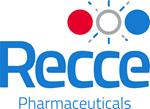Recce Pharmaceuticals Ltd (ASX: RCE, FSE: R9Q), the Company developing a new class of synthetic anti-infectives, is pleased to announce the Australian Patent Office has formally granted Recce a new family four patent, “Process for Preparation of Biologically Active Copolymer,” with expiry in 2041.
SYDNEY, Australia, Aug. 04, 2023 (GLOBE NEWSWIRE) -- Recce Pharmaceuticals Ltd (ASX: RCE, FSE: R9Q), the Company developing a new class of synthetic anti-infectives, is pleased to announce the Australian Patent Office has formally granted Recce a new family four patent, “Process for Preparation of Biologically Active Copolymer,” with expiry in 2041.
“We are thrilled to receive this new family of intellectual property, granted by the Australian Patent Office, with further market monopolies reinforcing opportunities among a significant range of bacterial and viral pathogens,” said James Graham, Chief Executive Officer of Recce Pharmaceuticals.
The Australian Patent has granted claims related to RECCE® 327 (R327) and RECCE® 529 (R529), including:
- Process for the preparation of RECCE® anti-infectives
- Use of R327/R529 for the treatment of disease, particularly in the treatment of bacterial infections, viral infections, and more
- Specifically, further validating RECCE® anti-infectives from studies in burn wounds, urinary tract infections, gonorrhea, influenza, SARS-CoV-2, and more (bacterial/viral pathogen examples below)
- Administration by oral, inhalation, transdermal delivery, or by injection (into the bloodstream, intramuscular, and/or intravenous)
- Administration may also be applied as an aerosol, gel, topical foam, or ointment (or impregnated into a dressing for application to skin or mucous membranes for transdermal or transmucosal delivery)
This is the first of Recce’s wholly-owned family four patents granted, with Patent Cooperation Treaty Country (PCT) patent submissions in respective stages of review.
Bacterial Pathogens Covered in Family Four
Bacterial infections may be caused by a select group of bacteria consisting of Proteus species, Serratia species, Pseudomonas aeruginosa, Neisseria meningitidis, Escherichia coli, Klebsiella pneumoniae, Staphylococcus aureus, coagulase-negative Staphylococcus species, Streptococcus pyogenes, Streptococcus pneumoniae, and Enterococcusspecies.
Viral Pathogens Covered in Family Four
Viral infections may be caused by a range of viruses, such as coated viruses (e.g., lipid-coated viruses), including herpes, human immunodeficiency virus (HIV), cytomegalovirus, and influenza. Preferably, the viral infection treated and/or controlled by the method of the invention may be HSV-1, HSV-2, Varicella Zoster Virus (in the form of chicken pox or shingles), HCMV, EBV, herpes 6, herpes 7, herpes 8, and SARS-CoV-2. Other examples include Influenza A, Ross River virus, and coronavirus, including those responsible for severe acute respiratory syndrome and SARS-CoV-2 (COVID-19).
About Recce Pharmaceuticals Ltd
Recce Pharmaceuticals Ltd (ASX: RCE, FSE: R9Q) is developing a New Class of Synthetic Anti-Infectives designed to address the urgent global health problems of antibiotic-resistant superbugs and emerging viral pathogens.
Recce’s anti-infective pipeline includes three patented, broad-spectrum, synthetic polymer anti-infectives: RECCE® 327 as an intravenous and topical therapy that is being developed for the treatment of serious and potentially life-threatening infections due to Gram-positive and Gram-negative bacteria including their superbug forms; RECCE® 435 as an orally administered therapy for bacterial infections; and RECCE® 529 for viral infections. Through their multi-layered mechanisms of action, Recce’s anti-infectives have the potential to overcome the hypercellular mutation of bacteria and viruses – the challenge of all existing antibiotics to date.
The FDA has awarded RECCE® 327 Qualified Infectious Disease Product designation under the Generating Antibiotic Initiatives Now (GAIN) Act – labelling it for Fast Track Designation, plus 10 years of market exclusivity post approval. Further to this designation, RECCE® 327 has been included on The Pew Charitable Trusts Global New Antibiotics in Development Pipeline as the world’s only synthetic polymer and sepsis drug candidate in development. RECCE® 327 is not yet market approved for use in humans with further clinical testing required to fully evaluate safety and efficacy.
Recce wholly owns its automated manufacturing, which is supporting present clinical trials. Recce’s anti-infective pipeline seeks to exploit the unique capabilities of its technologies targeting synergistic, unmet medical needs.
Corporate Contact
James Graham
Recce Pharmaceuticals Ltd
+61 (02) 9256 2571
James.graham@recce.com.au
Media & Investor Relations (AU)
Andrew Geddes
CityPR
+61 (02) 9267 4511
ageddes@citypublicrelations.com.au
Media (USA)
Jordyn Temperato
LifeSci Communications
jtemperato@lifescicomms.com
Investor Relations (USA & EU)
Guillame van Renterghem
LifeSci Advisors
gvanrenterghem@lifesciadvisors.com






